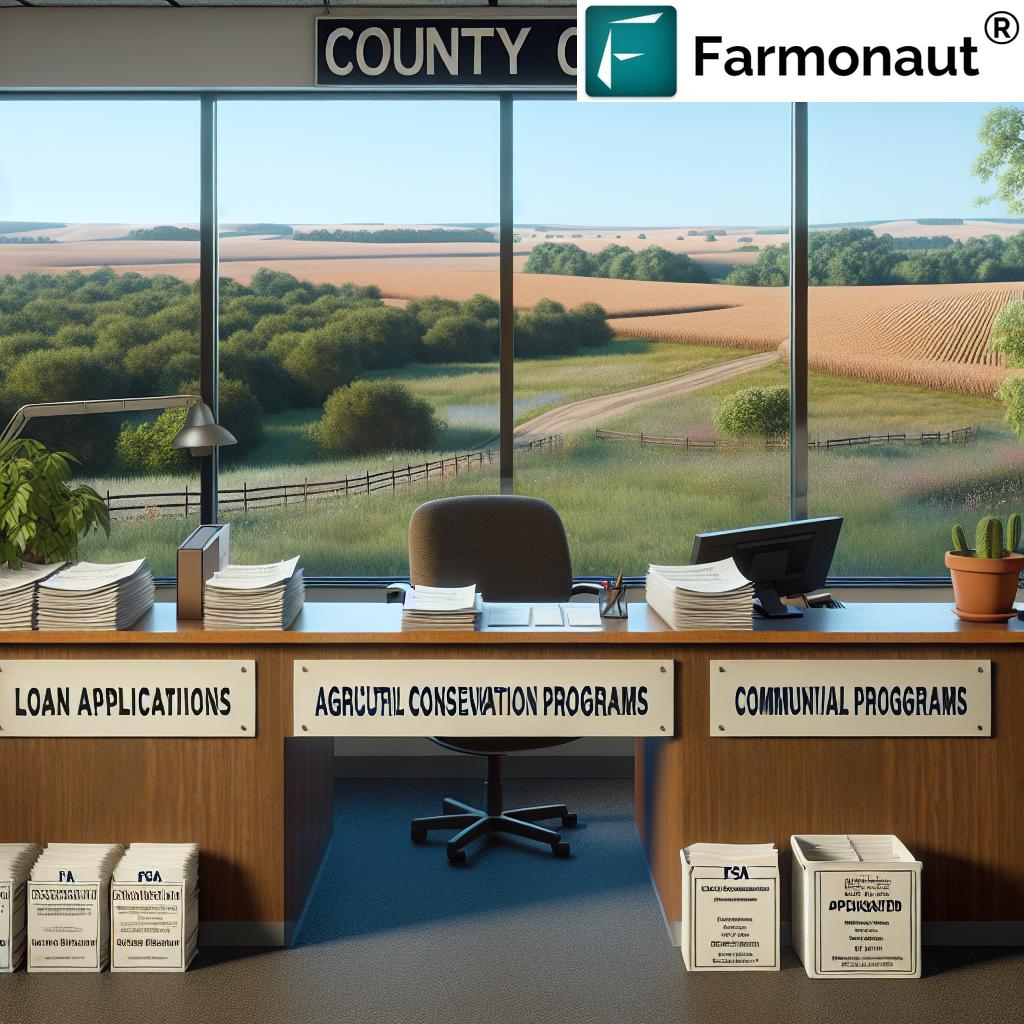Aphid Control Near Me: Natural Tree Pest Solutions Streator
- Understanding Aphids: Biology, Impact & Risk in Streator
- Aphid Control Near Me: Local Solutions for Streator and Similar Regions
- Aphid Control on Trees: Sustainable Strategies for Forestry and Agriculture
- Natural Aphid Control Techniques: The Future of Sustainable Pest Management
- Aphid Control in Streator: Region-Specific Tactics for a Thriving Ecosystem
- Natural Aphid Control Methods: Effectiveness, Sustainability, and Impact
- Farmonaut: Our Satellite-Driven Insights Empowering Aphid Control
- Modern Digital Tools for Aphid Pest Management: Precision, Monitoring, and Collaboration
- Frequently Asked Questions About Aphid Control Near Me
- Conclusion: An Integrated, Sustainable Aphid Pest Control Strategy for 2025
Understanding Aphids: Biology, Impact & Risk in Streator
Aphids remain one of the most persistent and damaging pests in agriculture and forestry, posing a significant threat to crop yields, tree health, and overall ecosystem stability. Especially near agricultural communities like Streator, understanding aphid behavior, biology, and preferred conditions is critical for effective aphid pest control in 2025.
Aphids are small, soft-bodied insects that cluster primarily on the tender parts of plants—leaves, stems, and shoots. Their sap-sucking feeding weakens plants by extracting vital nutrients, causing leaf curling, yellowing, and stunted growth. Moreover, aphids excrete sugary honeydew which coats surfaces, promotes growth of sooty mold fungi, and interferes with photosynthesis—further reducing tree vitality.
- Pest Impact: Diminished timber quality, decreased crop productivity, and reduced fruit yields.
- Pest Threat: Aphid infestations can lead to economic losses, disrupt ecosystem balance, and hinder sustainable agriculture.
- Streator Relevance: Streator faces aphid pressure due to diverse crop profiles and climatic conditions ideal for aphid proliferation, especially in young saplings and fruit trees.
Key takeaway: Early identification, monitoring, and adoption of natural aphid control techniques will be vital as we approach 2025 and beyond.
Aphid Control Near Me: Local Solutions for Streator and Similar Regions
Searching for “aphid control near me” brings up a mix of local extension services, tailored advice from agricultural universities, and regionally adapted pest management solutions.
- Regional Cooperative Extensions: Offer timely pest alerts, pest severity maps, and optimal treatment timings specific to Streator and similar Midwest agricultural regions.
- Local Pest Control Services: Specialized in targeted aphid management for tree nurseries, orchards, and forestry projects under local climatic conditions.
- Community Collaboration: Farmer-led initiatives in Streator allow for efficient monitoring, data sharing, and real-time intervention before populations reach damaging levels.
Tip: Don’t wait until heavy infestations—utilize local observations and crop scouting to detect aphid activity early. Community-compiled data improves timely aphid control efforts and supports integrated decision-making for sustainable agriculture.
Aphid Control on Trees: Sustainable Strategies for Forestry and Agriculture
Trees, especially young saplings and fruit trees, are particularly vulnerable to aphid infestations, making it imperative to establish robust, sustainable management strategies. Aphid control on trees should follow a holistic, eco-conscious approach for long-term success in both forestry and farming.
- Regular Visual Monitoring: Inspect leaves, stems, and shoots regularly, focusing on tender parts where aphids cluster first.
- Biological Integration: Ladybugs, lacewings, and parasitic wasps are beneficial predators—they help keep aphid populations under control without chemical input.
- Selective Pruning: Removing heavily infested branches reduces aphid numbers and improves airflow, decreasing favorable conditions.
- Aphid-Resistant Varieties: Proactive selection of resistant tree varieties and rootstocks strengthens long-term resilience in agricultural and forestry systems.
- Eco-Friendly Treatments: Horticultural oils and insecticidal soaps remain popular as aphid control natural solutions, minimizing risk to beneficial insects.
Sustainable aphid management on trees in Streator and similar regions demands integrating biological, physical, and non-synthetic methods, aligning conservation with productivity in 2025.
Natural Aphid Control Techniques: The Future of Sustainable Pest Management
Natural aphid control methods increasingly replace synthetic chemicals, as regulatory limits tighten and environmental awareness grows. For farmers and foresters in Streator and similar agricultural communities, embracing natural, eco-friendly techniques is essential to lasting aphid pest control, crop yield improvement, and ecosystem stability in 2025.
- Biological Control: Releasing or encouraging natural predators (ladybugs, hoverflies, green lacewings) to maintain aphid numbers.
- Companion Planting: Strategic companion planting with garlic, chives, marigold, or nasturtium naturally deters aphids.
- Organic Sprays: Neem oil, insecticidal soaps, and plant-based sprays (especially horticultural oil) disrupt aphids’ feeding and reproduction cycles but spare beneficials.
- Physical Barriers: Row covers and sticky traps provide non-toxic, preventive aphid management in field and orchard settings.
- Ecological Balance: Avoiding broad-spectrum unnatural insecticides supports beneficial insects and maintains ecosystem stability.
Benefits: Natural approaches reduce pesticide resistance while supporting pollinators and sustainability, fully aligning with modern integrated pest management (IPM) strategies.
Aphid Control in Streator: Region-Specific Tactics for a Thriving Ecosystem
Streator, Illinois, is a dynamic agricultural area with diverse climatic conditions, crop varieties, and land use patterns. Locally adapted aphid control strategies are critical for sustainable pest management here and in similar regions:
- Early Monitoring: Utilizing local pest monitoring networks, Streator’s farmers detect aphid infestations early for more targeted and effective responses.
- Community Collaboration: Real-time data sharing and pest scouting increase the precision of aphid treatments, reducing unnecessary pesticide use while safeguarding the ecosystem.
- Tailored Treatment Windows: Scheduling natural aphid control methods to match local temperature and rainfall patterns ensures efficacy and reduces environmental impact.
- Education & Local Extension Resources: Regional universities and extension services offer practical, science-based advice to manage aphids/’pests’ sustainably in Streator’s agricultural hubs.
By focusing aphid management at the local, community level, Streator and similar areas ensure higher crop yields, resilient trees, and long-term agricultural sustainability.
Natural Aphid Control Methods: Effectiveness, Sustainability, and Impact
Choosing the right aphid control methods is central to sustainable farming in Streator and beyond. The table below compares popular natural aphid control techniques on effectiveness, sustainability, and cost, helping you select the best fit for your conditions.
| Control Method | Estimated Effectiveness (% Control Achieved) | Environmental Impact | Cost Estimate (per acre in USD) | Sustainability Score (1-5) |
|---|---|---|---|---|
| Neem Oil (Organic Spray) | 70-80% | Low | $25–$40 | 5 |
| Ladybugs (Biological Control) | 60-75% | Low | $30–$60 | 5 |
| Horticultural Soap | 65-80% | Low | $20–$35 | 4.5 |
| Companion Planting (Nasturtium, Chives, Garlic) | 35-50% | Low | $10–$18 | 5 |
| Parasitic Wasps (Biological Control) | 60-75% | Low–Medium | $40–$70 | 4.8 |
Note: Effectiveness can vary based on crop type, infestation level, and local climate. Combining methods as part of an integrated strategy can improve pest control outcomes while maintaining environmental safety.
Farmonaut: Our Satellite-Driven Insights Empowering Aphid Control
At Farmonaut, we offer advanced satellite-driven decision tools and resource management services for agriculture and forestry—including sustainable aphid pest control. Our solutions help farmers and foresters in Streator and similar regions to:
- Remotely monitor crop health and detect early pest infestations using high-resolution satellite imagery, saving time and resources.
- Access real-time, AI-powered advisory on weather, pest pressure, and crop management for integrated aphid control.
- Utilize blockchain-based traceability tools for transparent production—see how our Product Traceability technology ensures food safety and authenticity from field to end-user.
- Track environmental impact and carbon footprint from pest management and farming practices—visit our Carbon Footprinting service to learn how eco-sensitive aphid control supports your sustainability goals.
- Boost financing access for sustainable agriculture with satellite-based Crop Loan and Insurance verification, reducing risks for reliable 2025 production.
- Empower large cooperatives and estates with remote Large Scale Farm Management software to streamline code-compliant pest management and yield optimization.
- Receive customized insect and disease alerts for each crop or plot via the Farmonaut App for iOS, Android, or API integration—explore our API for developers and Developer Documentation.
Our platform brings precise, environmentally conscious aphid management to every scale—from individual farmers to large regional cooperatives—ensuring robust control, increased crop yields, and sustainable profitability in 2025 and beyond.
Ready for smarter, greener pest control? Download Farmonaut now or try our modern advising tools for aphid control near me today.
Modern Digital Tools for Aphid Pest Management: Precision, Monitoring, and Collaboration
The future of aphid control—especially in progressive regions like Streator—relies on a hybrid of traditional scouting and modern remote sensing, digital communication, and integrated monitoring systems. Here’s why digital innovation is changing sustainable aphid pest management:
-
Satellite & Multispectral Monitoring: Frequent, large-area crop health scans help farmers spot aphid symptoms (yellowing, stunted growth) even before visible aphid clusters appear.
Farmonaut’s remote tools provide this cost-effectively for both small and large farms. - AI-Powered Alerts: Automated analysis identifies zones at risk for outbreaks, tailoring aphid control strategies by crop species, stage, and pressure.
- Real-Time Data Sharing: Apps and web platforms facilitate quick communication among growers, extension officers, and pest specialists. Rapid collaboration means aphid management keeps pace with growing pest populations.
- Blockchain Traceability: Tracking which fields used natural aphid control methods fosters brand transparency and opens markets for “sustainably grown” crops and timber.
- Fleet Management & Resource Optimization: Optimize spray runs for eco-friendly pesticides and beneficial insect releases with Farmonaut’s Fleet Management features—saving inputs and reducing environmental impact.
Did you know? With predictive analytics and environmental monitoring, proactive aphid control natural plans lead to earlier detection, more efficient resource use, and higher yields.
Frequently Asked Questions About Aphid Control Near Me
How do I know if my trees have an aphid infestation?
Aphids cluster on the undersides of leaves, stems, and shoots. Look for curled or yellow leaves, sticky honeydew residue, sooty mold, or stunted growth. Early monitoring is key.
Are natural aphid control methods really as effective as chemical sprays?
Integrated natural approaches—combining predators, organic sprays, and companion planting—can achieve 70–80% control, especially when applied early and consistently. They have less impact on the environment and reduce pesticide risk.
Why is Streator at particular risk for aphids?
Streator’s climatic variability and crop diversity foster ideal aphid breeding conditions. Community-level monitoring and tailored treatments are vital for regional success.
What is the most sustainable way to manage aphids in forests or tree crops?
Combining biological control (predators), organic sprays, and resistant plant varieties—plus regular surveillance—offers long-term resilience with minimal environmental impact.
Can Farmonaut help with aphid monitoring and decision support?
Our platform supports real-time surveillance, early pest detection, customized AI advisory, and compliance tracking so you can take action faster and reduce losses.
Conclusion: An Integrated, Sustainable Aphid Pest Control Strategy for 2025
Aphid control near me is more sustainable and effective in 2025 by merging early monitoring, tailored natural aphid control methods, and advanced digital technologies. In regions like Streator, where environmental stewardship is non-negotiable and agricultural profitability remains a priority, taking a proactive, collaborative approach is key.
We encourage every grower and ag professional to leverage community knowledge, integrate biological and natural solutions, and use the latest digital platforms—such as Farmonaut—to detect, manage, and sustainably control aphids in your fields and orchards.
Stronger, greener, and precision-driven—let’s cultivate a future where both nature and yields thrive, starting right here in Streator.













